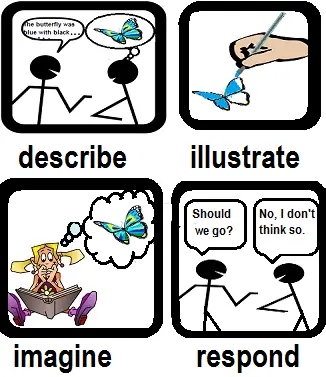Don’t ever feel you must use fancy or difficult vocabulary in academic writing. It's not necessary, or even good, to use the most uncommon vocabulary you know when writing in university or professional settings.
Common words work very well in academic writing as long as they express your ideas clearly. In fact, on exams testing your knowledge of English (the IELTS or TOEFL), you will LOSE points for misusing fancy academic vocabulary—so only use words you understand well.
The value of “academic” vocabulary is that it often is more precise (exact) than related common words. In addition, one academic word can sometimes express a thought that would otherwise require a whole phrase.
For example, “Scientists attribute global warming to an increase in greenhouse gasses.” Instead of using ‘attribute’ I could write “Scientists think that global warming is caused by an increase in greenhouse gasses.” It takes five words (think that, is
caused by) to replace two (attribute... to).
Another two examples are from Proofreading Practice. “...he (Hitler) probably never imagined the far-reaching implications of that decision.” I could have written, “he probably didn’t think much about the big effects of his choice that were not immediately obvious.”
The second sentence is not only longer and more awkward. It also loses the idea of imagination—being able to picture future results—and the connotations of ”implications.” (It is far more than just ‘effects that aren’t obvious right away.’)
The conclusion restates the opening thought: “No one could have predicted all the consequences that followed from Hitler's hatred of the Jews...” I could have written, “No one could have guessed in advance all the results of Hitler's hatred...” That paraphrase does express the same idea, but I think it is less
powerful.
I hope you can see that academic vocabulary can be useful if you use it correctly. Many academic words are more specific than related general words. They can express your thought more precisely—IF you understand their exact meanings. The best way to learn them is, as always, to read a lot and notice how they are used when you see them.

One set of words is especially important in academic writing: Transition Words. Be sure you know how to use these, and the differences between them.
This online crossword reviews some very useful academic vocabulary—from Proofreading Practice and other pages on English Hints. See how much you recognize (and which of these words you can use.)
For more on writing, see ESL Writing Tips — which includes links to a useful (downloadable) Proofreading Checklist and to a page on Academic Writing (term papers, etc.)
A note if you get gmail: Have you missed any issues of English Detective? if you find English Detective in your Promotions box, you can move it to your Primary box (if you want) by clicking on it and dragging it there, then clicking Yes when asked if you want to always get it in the Primary box.
If you are not already getting English Detective, you can subscribe by completing the form
here. (It's free!)
Also, you can reach me by mail at 1752 Driftwood Drive, El Centro, CA 92243, USA.
|

